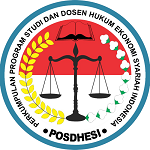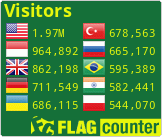Normalisasi Pembajakan Buku di Era Teknologi Digital
DOI:
https://doi.org/10.32332/muamalah.v2i2.7881Keywords:
Piracy, Illegal E-Books, Legal ProtectionAbstract
Piracy facilitated by digital technology has become increasingly prevalent due to the lack of awareness among perpetrators regarding the responsible use of digital tools. The rapid advancement of technology has made it easier for individuals to engage in piracy, particularly through digital media. This type of piracy often involves websites or platforms that provide plagiarized works. One of the most common forms of piracy in the digital era is the piracy of electronic books (e-books). In Indonesia, book piracy is a widespread issue, with pirated content ranging from partial to full copies of books. The growing perception that using pirated books is acceptable, particularly when they are offered at lower prices, has contributed to the proliferation of this practice. The findings of this study highlight the significant role of digital platforms in the distribution of pirated e-books, revealing that the ease of access and the economic motivations behind using pirated books are major factors driving this phenomenon. The study also identifies a lack of awareness about the legal and ethical implications of piracy, as well as the challenges in enforcing copyright laws in the digital age.
Downloads
References
Downloads
Published
Issue
Section
License
Copyright (c) 2023 Qurrotul Uyun

This work is licensed under a Creative Commons Attribution-ShareAlike 4.0 International License.
All articles in the Mu'amalah: Jurnal Hukum Ekonomi Syariah can be disseminated on condition that they still include the identity of the article and the source (Mu'amalah). The publisher is not responsible for the contents of the article. The content of the article is the sole responsibility of the author.
Authors who publish this subject agree to the following terms:
First, the Authors retain copyright and grant the journal rights from the first publication with the work simultaneously licensed under a Creative Commons Attribution-ShareAlike 4.0 International License that allows others to share the work with an acknowledgement of the work's authorship and initial publication in this journal.
Secondly, the authors can enter into a separate or an acknowledgement of its initial (e.g., post-institutional repository or publish it in a book) publication in this journal.
![]()
Third, the authors are permitted and encouraged to post their work online (e.g., in institutional repositories or on their website) before publishing work is cited.








